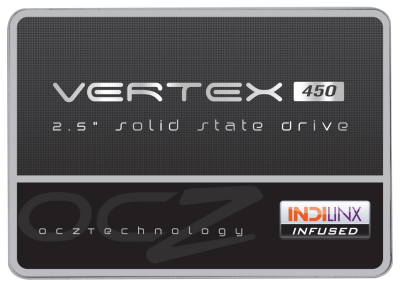- Details
- Flash Memory
![]() Silicon Power, the world’s leading provider of memory storage solutions presents you with a newly designed USB flash drive – Jewel J10. Combined with high technology and sleek design, the Jewel J10 enables you to show your extraordinary taste anytime and anywhere. This Northern Europe inspired design is not just another ordinary memory storage device but also a luxurious accessory which allows you to express yourself.
Silicon Power, the world’s leading provider of memory storage solutions presents you with a newly designed USB flash drive – Jewel J10. Combined with high technology and sleek design, the Jewel J10 enables you to show your extraordinary taste anytime and anywhere. This Northern Europe inspired design is not just another ordinary memory storage device but also a luxurious accessory which allows you to express yourself.
SP Jewel J10 will catch your eye with its stainless steel design and remarkable appearance, making itself a perfect combination of style and practicability. With the weight of 3.1g, J10 will amaze you with its mobility and convenience. Accompanied with advanced application of USB3.0 COB (Chip on Board), Jewel J10 is able to not only protect the golden finger from scratches but also prevent itself from damages caused by water, dust and vibration. Furthermore, the creative groove design ensures that your USB is only a keychain away.
- Details
- Flash Memory
Verbatim, a global pioneer of electronic data storage technology including optical media and flash memory, has expanded its popular and highly rated V3 Store’n’Go USB drive range with a product line offering faster connection and data transfer speeds. The V3 MAX delivers the fastest speed of any Verbatim USB drive.

With USB 3.0 connectivity that is backwards compatible with USB 2.0 ports, the V3 Max has a very impressive read speed of up to 175MB/sec and a write speed of up to 80MB/sec. It is available in storage capacities of 16GB, 32GB, 64GB and 128GB.
The V3 Max’s sleek appearance is boosted by a UV protective coating on its highly polished case to add further protection against scratches and marks from everyday wear and tear.
- Details
- Flash Memory
 Innodisk, a designer and manufacturer of SSDs for commercial and industrial applications, announces a release of the industrial-embedded industry's first SATA device in accordance to SATA µSSD standards – nanoSSD.
Innodisk, a designer and manufacturer of SSDs for commercial and industrial applications, announces a release of the industrial-embedded industry's first SATA device in accordance to SATA µSSD standards – nanoSSD.
Through the integration of a control chip, flash memory and peripheral power components into a single ball grid array (BGA) package, Innodisk has managed to reduce the size of the nanoSSD to approximately 1% the size of a 2.5” SSD. With dimensions of only 16 x 20 x 2 mm (WxLxH), a weight of only 1.5g, SATA III support, capacities ranging from 4 to 64 GB and both x86 and ARM compatibility, nanoSSD can be incorporated into a wide variety of applications where a small form-factor and high transfer rates are important, including industrial mobile devices, embedded systems, tablets, high-end smart phones and Ultrabooks.
Innodisk's nanoSSD not only offers the advantage of an incredibly small form factor, as a result of the integration of DRAM into a BGA, this product also features high read/write speeds of 480/175 MB/s, respectively. Whether for purposes of system booting, data storage, or data cache backup, nanoSSD can significantly improve overall system performance.
- Details
- Flash Memory
OCZ Technology Group, Inc., a leading provider of high-performance solid-state drives (SSDs) for computing devices and systems, today announced the release of the Vertex 450 SATA III SSD Series featuring the company’s proprietary Indilinx Barefoot 3 M10 Series controller. As part of the leading-edge Vertex series, Vertex 450 lives up to its name and bridges the gap between high performance and mainstream solid-state storage. With advanced storage performance, reliability, and quality, the Vertex 450 utilizes 20nm process geometry NAND flash to meet the needs of today’s high-end consumer and client applications.

“As one of the industry’s most highly awarded SSD Series to date, the Vertex name has become synonymous with the latest and greatest in flash-based storage providing an exceptional balance of performance and cost efficiency,” said Daryl Lang, Senior Vice President of Product Management for OCZ Technology. “The Vertex 450 marks the first time this popular OCZ series utilizes in-house ASIC technology delivering an even greater level of speed, reliability and value for our customers.”
- Details
- Flash Memory
SanDisk Corporation, a global leader in flash memory storage solutions, today announced it has begun customer sampling of flash memory products based on its industry-leading 1Ynm process technology, which represents its second generation 19 nanometer (nm) manufacturing technology.
SanDisk’s achievement of this breakthrough in semiconductor manufacturing takes its memory cell size from 19nm-by-26nm to 19nm-by-19.5nm, delivering a 25 percent reduction of the memory cell area and allowing SanDisk to continue leading the industry in building smaller, more powerful flash memory products.
SanDisk’s second-generation 19nm memory die uses the most sophisticated flash memory technology node to-date, including advanced process innovations and cell-design solutions. SanDisk's All-Bit-Line (ABL) architecture with proprietary programming algorithms and multi-level data storage management schemes help yield multi-level cell (MLC) NAND flash memory chips that do not sacrifice performance or reliability. In addition, SanDisk’s three bits per cell X3 technology, implemented in the second-generation 19nm node will deliver the lowest-cost flash solutions to address multiple growing end-markets for flash memory.

